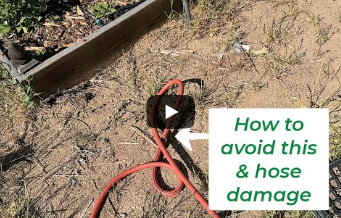Organic Fertilizer: A Natural Solution for Your Garden
Fertilizing the natural way
Organic gardening has gained popularity in recent years due to the increasing concern for environmental health and sustainability. One of the essential components of organic gardening is the use of organic fertilizer. In this post, we will explore the history, benefits, and best types of organic fertilizer, as well as specific sections on composting and worm castings.
History of Organic Fertilizer
The use of organic fertilizer dates back to ancient times when farmers used animal and plant waste to improve soil fertility. In the 19th century, German chemist Justus von Liebig developed the first synthetic fertilizer, which led to the widespread use of chemical fertilizers in agriculture.
However, the overuse of synthetic fertilizers has caused environmental damage, such as water pollution and soil depletion. This has led to a renewed interest in organic farming, which relies on natural inputs to promote soil health and plant growth.
Why Use Organic Fertilizer?
Organic fertilizer has several benefits over chemical fertilizers. Firstly, organic fertilizers release nutrients slowly, providing a steady supply of nutrients to plants over time. This reduces the risk of nutrient burn, which can occur when using chemical fertilizers. Secondly, organic fertilizers improve soil health by increasing soil organic matter and promoting microbial activity. This, in turn, leads to better soil structure and water retention.
Organic fertilizers are also more environmentally friendly than chemical fertilizers. They are made from renewable resources, reduce waste, and do not contribute to water pollution or soil degradation.
Best Types of Organic Fertilizer
There are many types of organic fertilizers available, each with its unique benefits. Here are the best types of organic fertilizer ranked in order:
- Compost – Compost is a natural fertilizer made from decomposed organic matter such as leaves, grass clippings, and food scraps. It is rich in nutrients, including nitrogen, phosphorus, and potassium, and improves soil health by adding organic matter and promoting microbial activity.
- Worm Castings – Worm castings are another natural fertilizer made from earthworms’ excrement. They are rich in nutrients, including nitrogen, phosphorus, and potassium, and improve soil health by increasing soil organic matter and promoting microbial activity.
- Bone Meal – Bone meal is a slow-release fertilizer made from ground animal bones. It is high in phosphorus, which promotes root growth and flower development.
- Blood Meal – Blood meal is a fast-release fertilizer made from dried animal blood. It is high in nitrogen, which promotes leaf growth and green foliage.
- Fish Emulsion – Fish emulsion is a liquid fertilizer made from fish waste. It is high in nitrogen and other nutrients, including phosphorus and potassium.
Composting
Composting is a natural process that breaks down organic matter into nutrient-rich soil amendment. Composting can be done at home using kitchen scraps, yard waste, and other organic materials. The resulting compost can be used as a natural fertilizer, providing nutrients to plants and improving soil health.
To start composting, collect organic materials such as fruit and vegetable scraps, coffee grounds, and leaves. Layer the materials in a compost bin or pile, adding water as needed to keep the compost moist. Turn the compost regularly to provide oxygen and speed up the decomposition process. The resulting compost should be dark, crumbly, and free of any odors. You can read more here: Composting Guide.
Worm Castings
Worm castings are a natural fertilizer made from earthworms’ excrement. Worms consume organic matter and digest it, producing nutrient-rich castings that are high in nitrogen, phosphorus, and potassium. Worm castings improve soil health by increasing soil organic matter and promoting microbial activity.
To make worm castings, set up a worm bin and add organic materials such as fruit and vegetable scraps, coffee grounds, and shredded paper. Add worms to the bin and allow them to consume the organic matter, producing castings in the process. Once the castings are ready, harvest them by removing the top layer of the bin, leaving the castings behind.
In conclusion, organic fertilizer is a natural solution for your garden that provides many benefits over chemical fertilizers. Compost and worm castings are two of the best types of organic fertilizer, providing nutrients to plants and improving soil health. Composting and worm casting production can also be done at home, reducing waste and promoting sustainability. By using organic fertilizer in your garden, you can promote plant growth while protecting the environment.
Recent Posts

The Advantages of Built-Up Garden Beds: A Gardener’s Best Friend

The Secret Weapon for Lush Blooms: How to Create the Perfect Fertilizer Schedule

Create a Stunning Cottage Garden with These Easy-to-Grow Flowers

Fastest Growing Trees: Transform Your Landscape Quickly

What to Plant in July: A Comprehensive Guide for Gardeners










